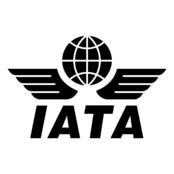The future of travel accounting
The travel industry is evolving rapidly, and accounting practices are transforming alongside it. With increasing global transactions, complex commission structures, and ever-changing regulations, travel agencies require more than just traditional bookkeeping methods. The future of travel accounting lies in automation, artificial intelligence, cloud-based solutions, and advanced analytics that streamline financial management while improving accuracy and efficiency.
Modern accounting software is already revolutionizing the industry by automating tasks such as invoice generation, expense tracking, and tax compliance. Artificial intelligence (AI) is playing a growing role, helping agencies predict revenue trends, detect financial discrepancies, and optimize cash flow. Meanwhile, blockchain technology is enhancing security, making transactions more transparent and reducing fraud risks.
Cloud-based accounting solutions are also shaping the future, allowing travel agencies to manage their finances from anywhere with real-time data access. This flexibility is crucial in a fast-moving industry where agencies must respond quickly to market changes and customer demands. Additionally, integrations with booking platforms, CRM systems, and payment gateways are making financial workflows more seamless than ever before.
As the travel industry continues to embrace digitalization, agencies that invest in advanced accounting technologies will gain a competitive edge. By leveraging automation, AI, and real-time data insights, travel businesses can not only simplify financial management but also drive growth and profitability. The future of travel accounting is smart, connected, and highly efficient—making it an essential component of any successful travel agency.
Automation and AI: The end of manual accounting

One of the biggest shifts in travel accounting is the rise of automation and artificial intelligence (AI). Travel agencies handle numerous financial transactions daily, from booking payments to supplier settlements and commission tracking. In the past, these processes required significant manual effort, often leading to errors and inefficiencies.
With AI-powered accounting software, tasks like invoice generation, expense tracking, and reconciliation can now be automated. AI can also detect financial discrepancies, helping agencies reduce fraud and human errors. More advanced systems even provide predictive analytics, allowing agencies to forecast revenue trends and adjust pricing strategies accordingly. By eliminating repetitive tasks, AI enables travel businesses to focus on customer service and business expansion instead of spending hours balancing their books.
Cloud-based accounting: Real-time financial control
Another major development shaping the future of travel accounting is cloud technology. In an industry where remote access to data is crucial, cloud-based accounting software provides travel agencies with real-time insights into their financial health from anywhere in the world. Unlike traditional desktop-based systems, cloud accounting eliminates the risk of data loss, ensures automatic software updates, and allows seamless integration with booking platforms, CRM systems, and payment gateways.
For travel agencies with multiple branches or remote employees, cloud solutions facilitate collaboration by allowing teams to access and update financial records instantly. Additionally, cloud-based accounting improves security by encrypting financial data, reducing the risk of fraud or cyberattacks. As travel businesses continue to operate in a digital landscape, cloud accounting is becoming an essential tool for financial management.

Blockchain: A game-changer for secure transactions

Blockchain technology is also set to revolutionize financial processes in the travel industry. As agencies frequently deal with international transactions, issues such as payment fraud, chargebacks, and currency exchange fees remain major concerns. Blockchain, with its decentralized and tamper-proof ledger, can make financial transactions more secure, transparent, and efficient.
By using blockchain-based accounting systems, travel businesses can reduce the risk of payment fraud and ensure faster, error-free transactions. Smart contracts, an innovation within blockchain technology, allow payments to be automatically processed when certain conditions are met, eliminating disputes and delays. While blockchain adoption in travel accounting is still in its early stages, it has the potential to significantly enhance financial security in the coming years.
Smart expense management and cost optimization
Travel agencies operate in a highly dynamic environment where expenses can fluctuate due to seasonality, changing airline fares, and hotel pricing. Traditional accounting methods often fail to provide agencies with real-time insights into spending trends, leading to financial inefficiencies. However, modern accounting software is addressing this challenge by offering advanced expense management tools.
AI-driven expense tracking allows agencies to categorize and analyze spending patterns, helping them make data-driven decisions on cost reduction. Automated budgeting tools can provide real-time notifications for overspending, ensuring that agencies stay within their financial limits. As technology advances, financial management will no longer be reactive but proactive, enabling agencies to optimize their budgets more effectively.








